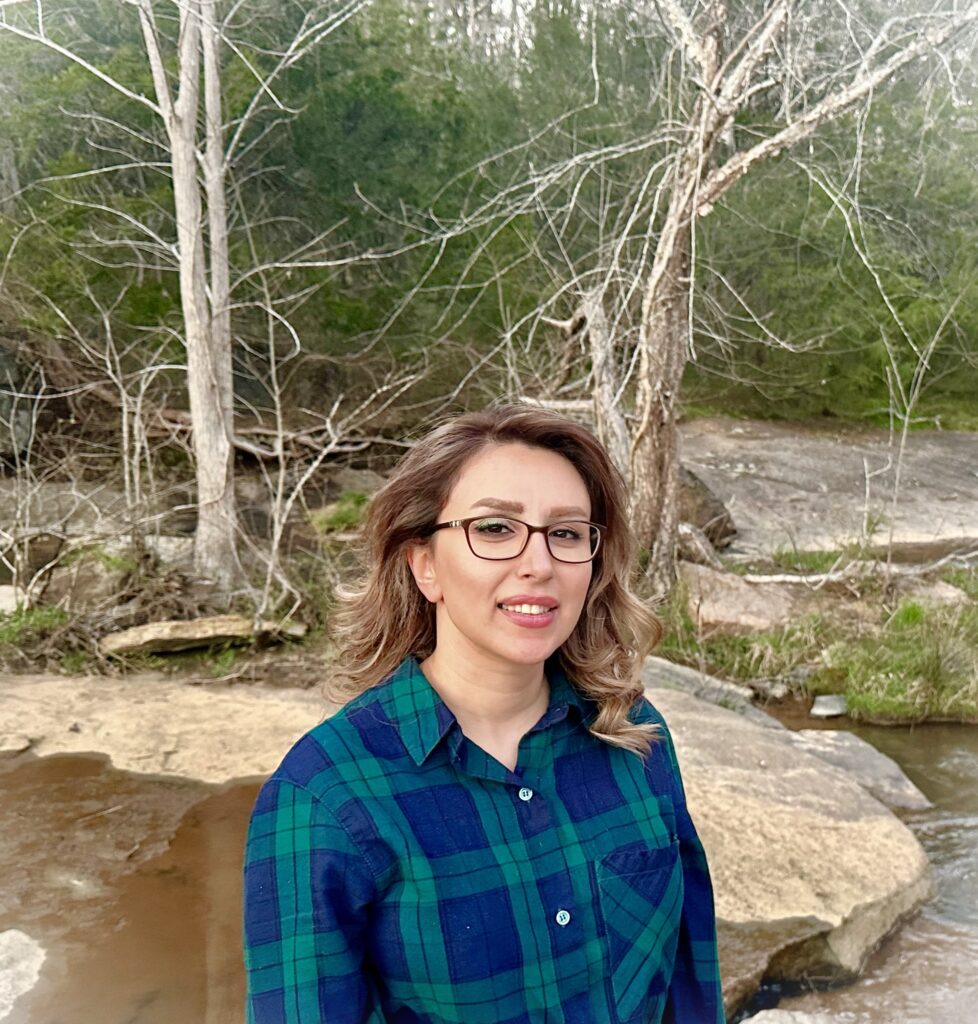
The Jones Center at Ichauway Landscape Ecology lab is proud to welcome Dr. Behnoosh Abbasnezhad! Abbasnezhad recently joined the lab as a Postdoctoral Research Associate after completing her PhD research at the Warnell School of Forestry and Natural Resources in the Environmental Governance and Policy Lab of Dr. Jesse Abrams.
Dr. Abbasnezhad’s years of experience combining spatial ecological data and addressing social aspects of conservation will be an asset to the lab’s upcoming work. In her new role, Abbasnezhad will work to improve conservation outcomes in longleaf pine ecosystems by working with NRCS to develop tools for identifying high-priority areas for conservation easements. She will also lead work to document and develop education materials to improve natural disturbance-based management outcomes in longleaf pine.
I asked Dr. Abbasnezhad to share more about herself and the research she is doing.
What got you interested in conservation of longleaf pine or ecology in general?
I am interested in conservation of all sorts of terrestrial ecosystems, but biased toward forestlands due to their ability to sequester carbon, and the recreational enjoyment by local communities and people all around the world benefit from forestlands conservation.
How long have you been working in conservation? What is background with conservation research?
It has been over a decade since I decided to be a part of environmental restoration projects, coming from a country that does not have environmental conservation among its development priorities. My focus has been on decelerating anthropogenic natural resources degradation. Over the past 5 years, during my Ph.D. research in the U.S., I focused on integrative conservation of natural resources.
What was the focus of your dissertation research at UGA? What is one of the most important or impactful finding from those studies?
My dissertation research (“Conservation Planning as a Transdisciplinary Process’) integrates socio-economic and policy factors into conservation planning of forests. I focused on the Upper Flint River Watershed, Georgia, USA. In this research we used extensive geospatial analysis to project changes in landuse and land cover through the year 2040, and estimated changes in availability of ecosystem services through time. We used publicly available data for the conterminous USA, which makes our geospatial models replicable in other regions.
Because of the high level of forests in private ownership in our region, we also explored the conservation value of small land holdings. Combining the results of my geospatial analysis and family forest owners survey, we were able to address a gap in existing conservation policies. We found that among areas of high conservation, some of the most at-risk of conservation to other land uses include small parcels (less than 50 acres) of forestland near urban areas. On the other hand, high conservation value forest lands with deciduous/mixed species in rural regions are anticipated to convert to pine plantations. Urbanization pressure, maximizing revenue from the land through timber production, and property tax and government regulation concerns strongly affect family forest owners’ management decision making processes.
What do you look most forward to accomplishing and learning in this new position at the Jones Center?
For me it is a wonderful opportunity to collaborate with NRCS in identifying high conservation value regions and learn from their real-world experience working with landowners. I am also excited to expand my geospatial analysis skillset by learning LiDAR data analysis as well.
You just successfully completed your PhD dissertation defense. Congratulations! What advice do you have for current graduate students and for those considering a career in ecology, conservation, or academics?
I’d say that while doing nature-related research, there are many known and unknown complexities that create difficulties. So choose your research topic by heart, because in times you face hardships your passion is your strongest motivation to continue. Also, because of constant and rapid technology development, always try to keep your skillsets up to date, and never stop learning new skills.
What is one text that you think of as a “must read” including scientific papers, textbooks, or recreational reading?
For me, it was my major adviser’s book: Forest Policy and Governance in the United States: An Introduction by Jesse Abrams. Reading it feels like learning about forest policies in a story setting without getting tired or bored.